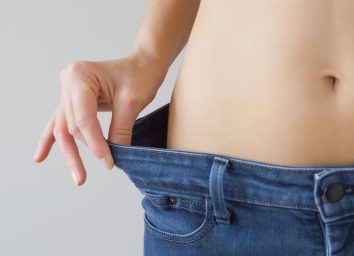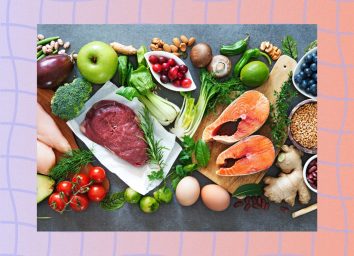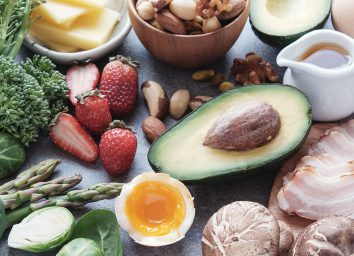30 Ways to Stick to Your New Diet
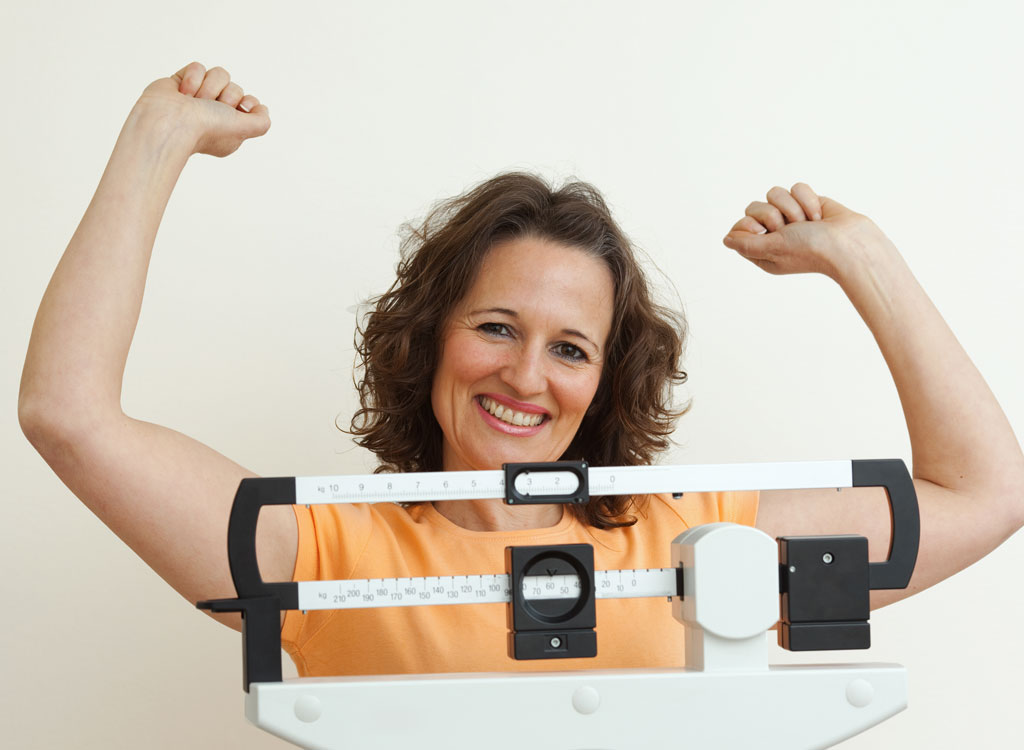
Over 26 percent of people admit that they give up on their diets before seeing the results they wanted. How can you be among the percentage of people who stick to their diet and are actually successful at losing weight? Sticking to a diet comes naturally if you (1) start it properly in the first place and (2) stay attuned to the common roadblocks that may sabotage your efforts—and know exactly how to overcome them.
We asked nutritionists to reveal some of the best ways for how to stick to your diet, whether you've decided to embrace a vegan, paleo, keto, or virtually any other eating ethos.
Start now.

Many say they'll start going to the gym when work calms down or start eating healthier after the weekend, but there's no better day than this one. "It's natural to consider taking time to regroup and then resume (or start over) when life feels easier—take New Year's for instance. At the same time, this impulse is one of the fastest, surest, most reliable ways to sabotage your plans for improved nutrition, health, and fitness. We call this the 'pause-button mentality,'" explains Brian St.Pierre, MS, RD, CSCS, Precision Nutrition's Director of Performance."This pause-button mentality only builds the skill of pausing. This is compounded by the illusion that if we start fresh later we can find the magical right time to begin."
Don't fall victim to the 'fast and feast' cycle.

"The main stumbling block I find among those trying to lose weight is what I call the 'fast and feast cycle,'" says Bonnie Balk, RD, Registered Dietitian and Health & Wellness Expert for Maple Holistics. "Dieters usually decide they need to shed their weight pronto, so they start by barely eating (or skipping meals entirely) throughout the day, only to come home and devour whatever is in sight. When the surge of fatigue, dizziness, and hunger kicks in at night, they lose their self-control. Research suggests that skipping breakfast increases both waist circumference and BMI, resulting in obesity. Plus, studies of individuals with strict diet restraints show they binge eat later on. Beyond what and how much we're eating, when we eat is a key player in losing weight."
Don't make rules; make choices.

When you approach a diet with a restrictive mindset, you're more likely to give up on that diet. When it comes to how to stick to a diet, Rachel Fine, RD, a registered dietitian and owner of To The Pointe Nutrition recommends an inclusive approach. "An inclusive approach [as opposed to a calorie- and fat-restricted regime] is key to long-term success. Instead of rules, make choices. Add more minimally processed, nutrient-dense, plant-based foods like fresh produce, nuts, seeds, and legumes to your meals," says Fine. "An 'eat less' calorie-counted mindset can set us up for a cycle of guilt when we don't meet unfair expectations. On the other hand, an inclusive approach allows for enjoyment of all foods."
Refocus social gatherings away from food.

"Other reasons diets fail is that our culture is one of convenience and social interaction. When it comes to convenience, following a restrictive diet can be incredibly difficult. Either the person gravitates toward fast food options or they starve themselves until they get to a place where they can eat again," explains Mary-Catherine Stockman, MPH, RD, LDN of BusyBabesNutrition. "When it comes to socializing, Americans tend to center socialization around food—a holiday party, a baby shower, grabbing drinks after work. These environmental factors make it difficult to stick to restrictions and can actually increase stress." Instead of meeting up around food or booze, ask if a friend wants to go for a walk, take a yoga class together, or check out a museum exhibit.
Stop counting calories.

Don't let the endless array of calorie-counting apps fool you. In the long-term, counting calories is likely doing more harm than good. "Calorie counting is not sustainable, because no one can keep up with it forever. When people eventually quit, they may feel like a failure or become so frustrated that they give up on their diet altogether," says Joanna Foley, RD, CLT, who runs a holistic nutrition coaching business. "Instead of focusing on calories, I recommend focusing on nutrients. Make sure your meals are balanced with a proper ratio of carbs, protein, and healthy fats." For better alternatives, there are always these counting calories alternatives.
Stop obsessing over what you 'can't have.'

Because the truth is, you can eat virtually anything, as long as it's a healthy portion and you keep "indulgent, caloric treats" in the "rare treats" category. But beyond that, this narrowing mindframe can set you up for failure. "Diets are overly restrictive and unrealistic for long-term use. It may be possible to avoid carbs for a month or so, or to reduce portion sizes for a week, but what happens after that? If your body has been accustomed to eating certain things in a certain way, deviating from that in a significant way is going to backfire," says Foley. "Instead of removing entire food groups, significantly cutting portion sizes, and focusing on what you 'can't have,' focus on making small, realistic changes that focus on what you CAN have." This mentality will help you stick to your diet so you can happily maintain it long-term.
Eat the rainbow.
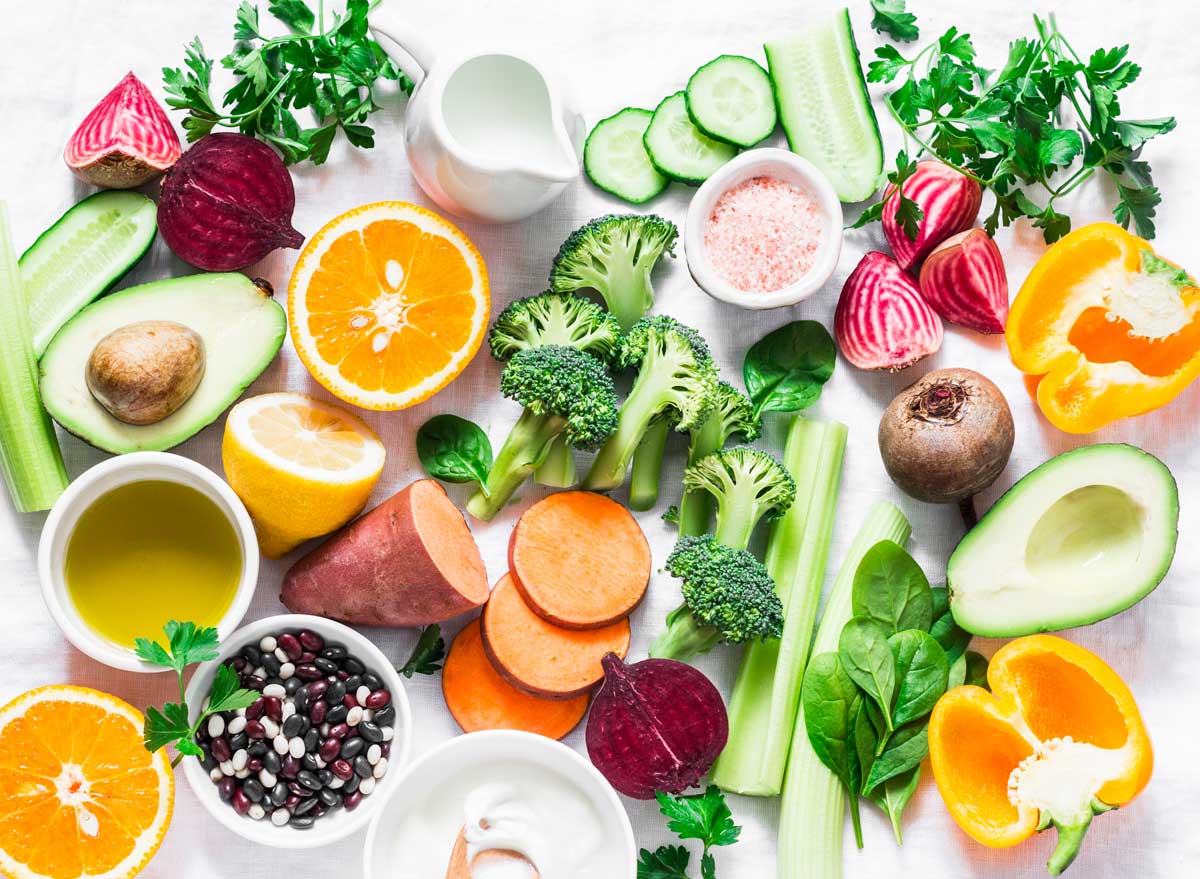
"Eat the rainbow" may sound cliché, but it's true. "I often get asked by my clients why they aren't losing weight when they're counting all their calories, eating salads for every meal, and eating fewer calories than their calculated needs. The weight will not come off when your body is lacking essential nutrients," says Amy Chow, RD, a registered dietitian and co-founder of the BC Dietitians Directory. "It's always a good idea to have your diet assessed by a registered dietitian to see if you need supplements and how you can maximize your metabolism." Worth noting: In general, it's better to get nutrients from a food source rather than supplements.
Determine if 'cheat days' are working for or against you.

"When and how people decide to 'give up' on their diet varies from person-to-person. For some, the idea of having a 'cheat day' may help them stick with the diet longer because they know they will allow themselves foods they enjoy on certain days," offers Foley. "For others, though, 'cheat meals' and 'cheat days' can quickly get out of hand and can end up being cheat weeks, months, etc." If including a "cheat day" or "cheat meal" in your routine spills beyond the allotted period, rethink this strategy. In Foley's opinion, "For a diet to be sustainable, there should be no such thing as 'cheat days,' because the eating plan should be set up in a way that is realistic and enjoyable to the person following it." If you know this concept works for you, check out our guidelines for making a cheat meal worthwhile.
Focus on a few small changes.

"Focus on one-to-two simple changes, stick to them for a month and then add on other changes the next month. Soon enough, these small changes will become second-nature and you won't be so overwhelmed when you add on other changes," suggests Amanda A. Kostro Miller, RD, LDN, serves on the advisory board for Smart Healthy Living. A few of Kostro Miller's examples of simple changes include "I will go to the gym two times per week every week" and "I will eat three vegetarian-style dinners each week."
Set SMART goals.

"One reason diets fail is due to setting unrealistic goals and losing motivation. It took a long time to put the weight on and it will take time for it to come off," says Terrie Jorgenson, RD, LD. "Set SMART (Specific, Measurable, Achievable, Realistic and Timely) goals to increase your chance for success." As Jorgenson quoted to us, perhaps it is Mark Twain who said it best: "The secret of getting ahead is getting started. The secret of getting started is breaking your complex, overwhelming tasks into small manageable tasks, then starting on the first one."
Incorporate plenty of filling foods into all your meals.
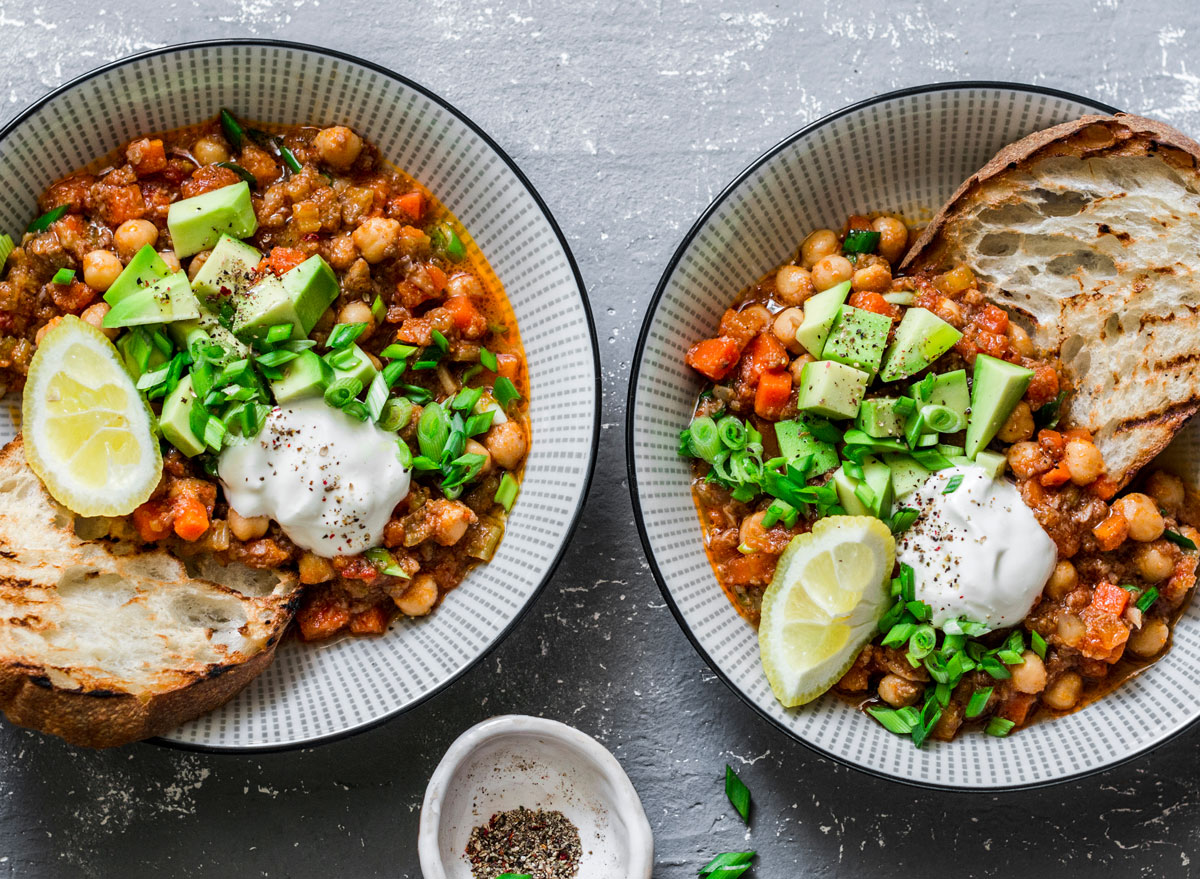
"Diets rarely consider a person's satiety and satisfaction. They push the idea of limiting one's food and calories, and they aren't sustainable for most people. To overcome it, people need to
find satiating foods (such as protein and healthy fat) that promote weight loss," advises Sofia Norton, RD, health and nutrition writer, and ketogenic diet expert at Kiss My Keto.
Use your hands to measure portions.

Not to eat, but as a free portioning tool. "Your hand is proportionate to your body size, its size never changes, and it's always with you, making it the perfect tool for measuring food and nutrients—no detailed tracking or calorie-counting required," says St.Pierre.
"These specific hand-sized portions (palms for protein, fists for vegetables, cupped handfuls for carbs, and thumbs for fats) essentially track macros and count calories for you. This lets you simply and easily build out your meals, with minimal counting or tracking required."
Pay attention to your body's hunger cues.
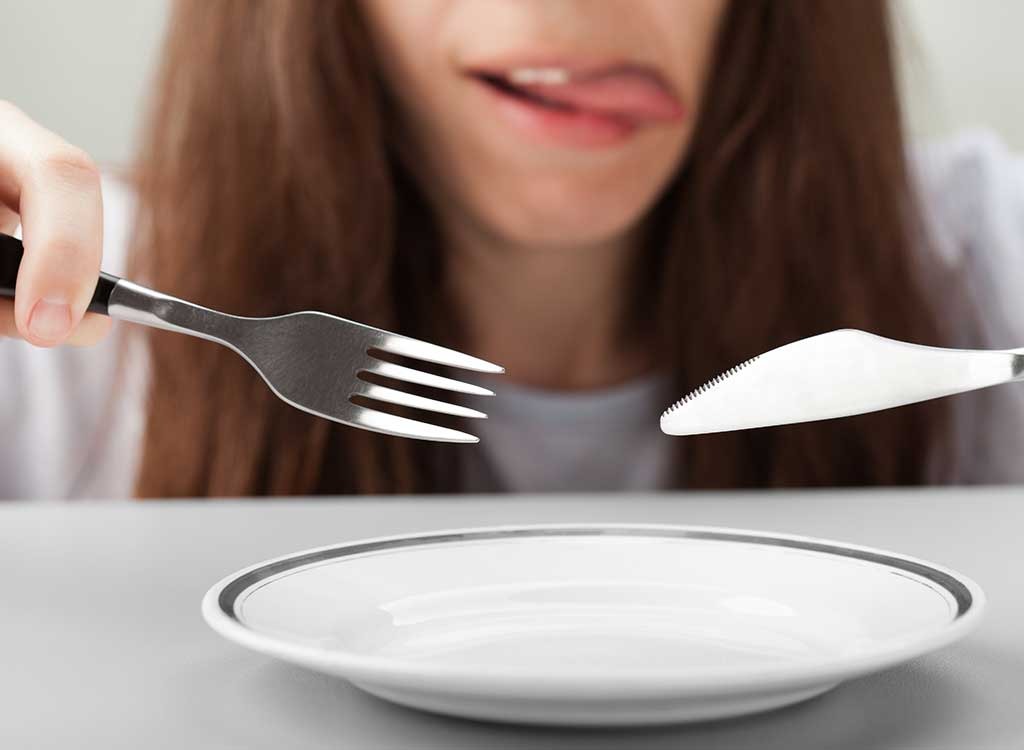
"If people are dieting, they may ignore their natural hunger cues and try to rely on 'willpower' instead. Even if you're trying to lose weight, you need to make sure you're eating enough, and having a sufficient amount of protein, fiber, and good quality fats in every meal to keep you satisfied and your blood sugar balanced which will keep low energy and cravings at bay," suggests Amy Shapiro MS, RD, CDN, Daily Harvest's nutritionist and the founder and director of Real Nutrition.
Meal prep, meal prep, meal prep.
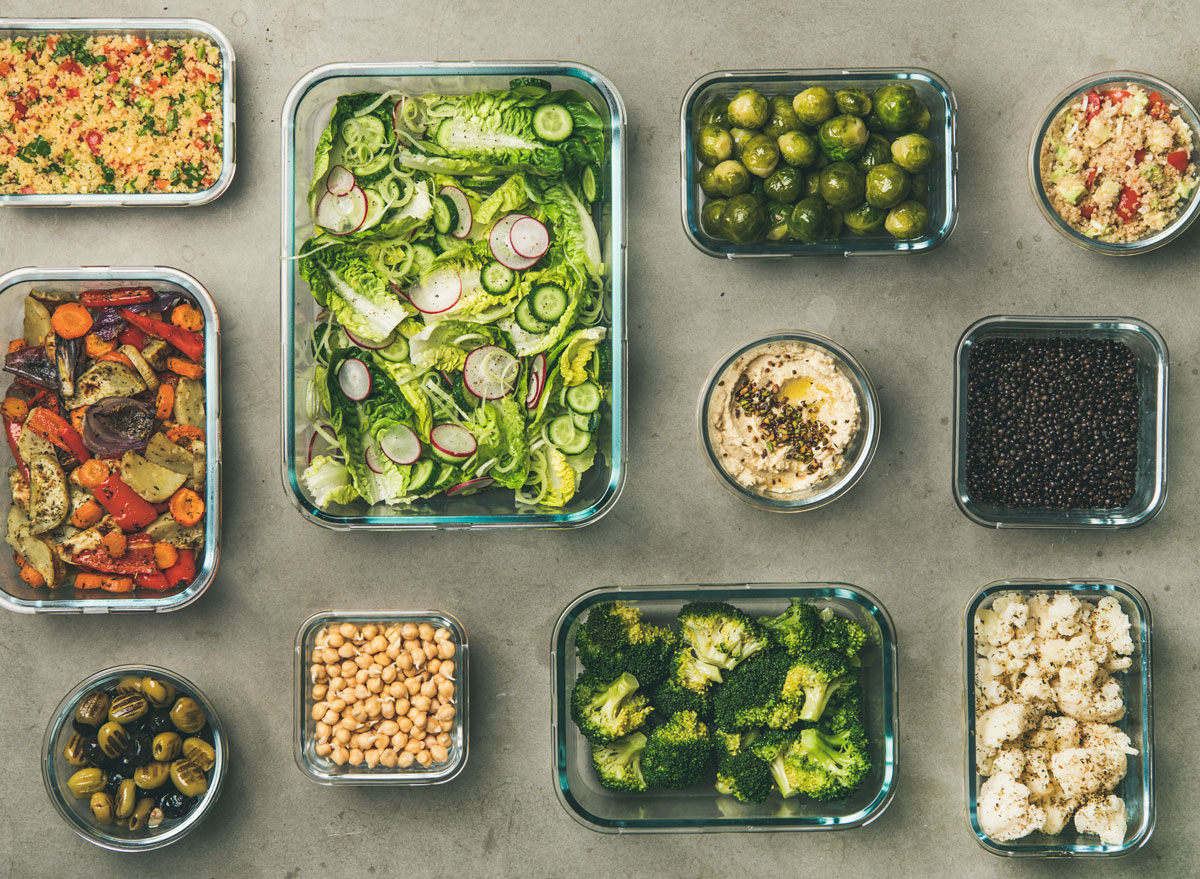
"People often are not prepared. Meal prep really helps you to stay on-point. If you don't cook, then you should menu stalk or order a meal delivery service that focuses on health," says Shapiro, who is a big fan of the convenience and ease of Daily Harvest, which includes plenty of veggies in each dish. "If you get to meal-time and you are hungry and don't have anything healthy to eat, chances of eating unhealthy food increases."
Upgrade your favorite foods to make them healthier.
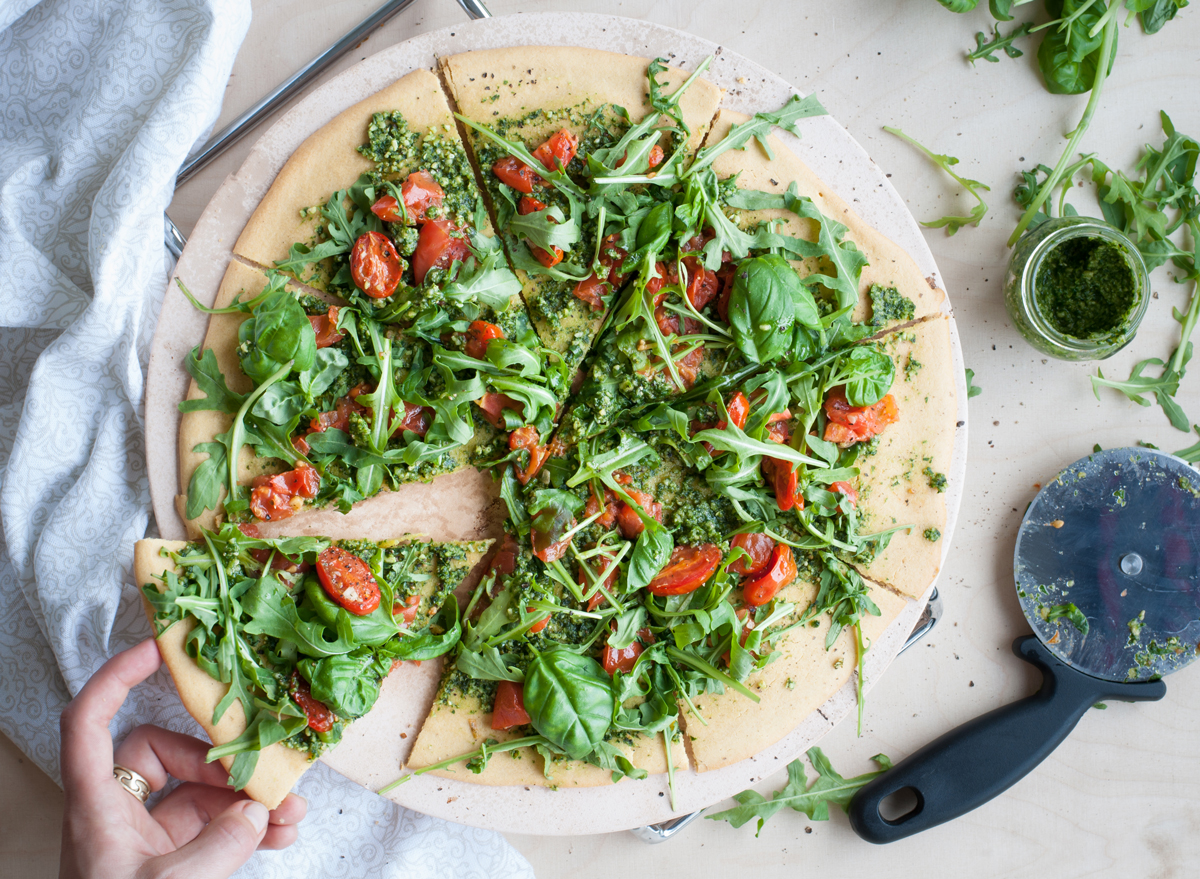
"Figure out healthier ways to eat the foods you love," says nutritionist Brocha Soloff, RD, of iHeart Health. She suggests tweaks like making a healthy pizza on high-fiber tortillas.
Try a food journal—at least in the short-term until you're settled into your new lifestyle.
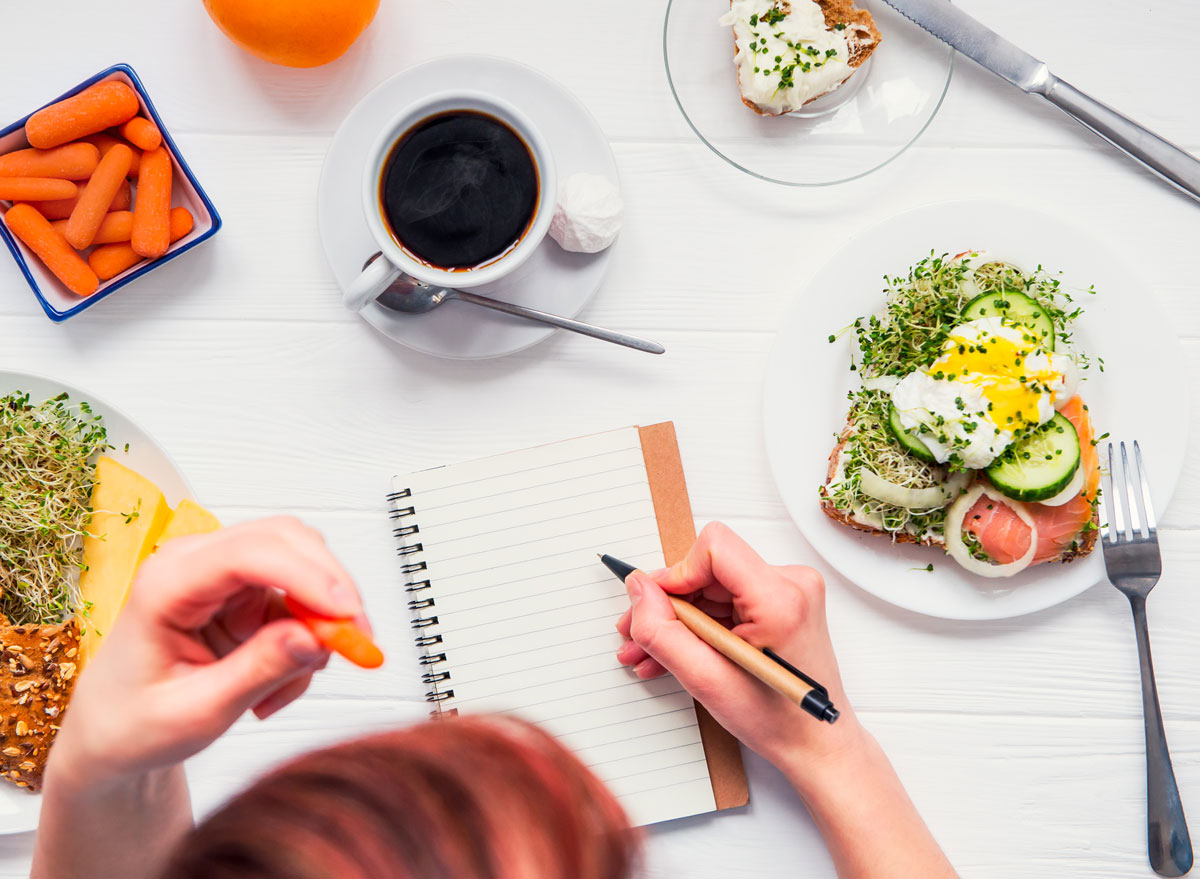
"People tend to underestimate their intake, and the best way to keep track is to keep a detailed food journal in real time three-to-four days per week instead of counting calories every day," offers Chow. "Food is more than just calories, a detailed food journal can teach you to be more mindful about your portion sizes, timing of your meals, your stress level and feelings and other things you could improve on." Also, the actual act of having to write things down by hand or type it out in a document may inspire you to think twice before grabbing that extra double chocolate chunk cookie.
Treat your body with some TLC.

Your body does so much for you, each and every day. Go gentle on yourself, especially if you stray from your diet a bit."If you get a dent in your car, do you smash it with a hammer afterward? Although this sounds ridiculous, this is the reality of what people do when they 'cheat' from their diet and then give up entirely," cautions Balk. "By shifting our mindset to viewing our body as our vehicle for surviving this world, we would be more forgiving and do our utmost to treat it with ultimate care."
Celebrate the little victories.

"Once a client achieves that specific and measurable goal, they get a deposit of confidence and can move onto another area of a healthy dietary pattern," says Stockman. "By setting clients up for small successes, they realize that nutrition does not need to be restrictive and that it can be sustainable long-term." You can even celebrate with a little non-food reward like a spa day, manicure, or new workout shorts! While this is top of mind, jot down a few small daily healthy eating goals that you think can work for you.
Don't let one slip up throw you off course.

Gone overboard on vacation, at a holiday party, or because your mood got the best of you? "When you mess up, my best advice is to pick up right where you left off. Don't even try to compensate by skipping the next meal because that will just get you into this vicious cycle," suggest Soloff. Be kind to yourself, reinforce your dedication to eating healthy, and remember nobody is perfect. Just because you didn't stick to your diet for one day or one week doesn't mean you can't hop right back on the bandwagon.
Be committed for the long-haul.

The power is in your hands, seize it. "We've done over a decade of research with thousands of our clients, men and women from all walks of life, from multiple Olympic gold medalists to people who have never once set foot in a gym (and don't intend to). And in that research, we discovered the answer: to get in shape once and for all, you have to do things that are simpler than people expect, but for longer than people expect," says St.Pierre.
Continue to eat (or drink) your favorite foods.

A life without cookies is a sad one indeed. "One way to still control your overall calorie intake while enjoying your favorite foods: Allow yourself one serving of a 'special food item' per day (i.e. candy, chocolate, alcohol, chips)," shares Kostro Miller. "If you count calories, this may equate to 100-200 calories per day of a 'special food item.' If you can limit special foods even more (i.e. limit to 2x per week), then go for it, but if you're like me, I wouldn't be happy if I couldn't have chocolate every single day!" On that note, did somebody say popcorn?
Eat with intention.

We're not talking about table manners. "Focus on not only what to eat, but also on how to eat; this is a key piece missing for most people, and from most coaching programs," says St. Pierre. "The two main ways to improve how you eat, are to 1) eat slowly, and 2) stop at satisfied, instead of stuffed. This is surprisingly difficult for most people. It's also surprisingly rewarding, as it begins to build the skill of self-regulating their intake." So if that means you have to leave food on your plate, so be it. (Don't worry, we won't tell your mom.)
Don't villainize food.
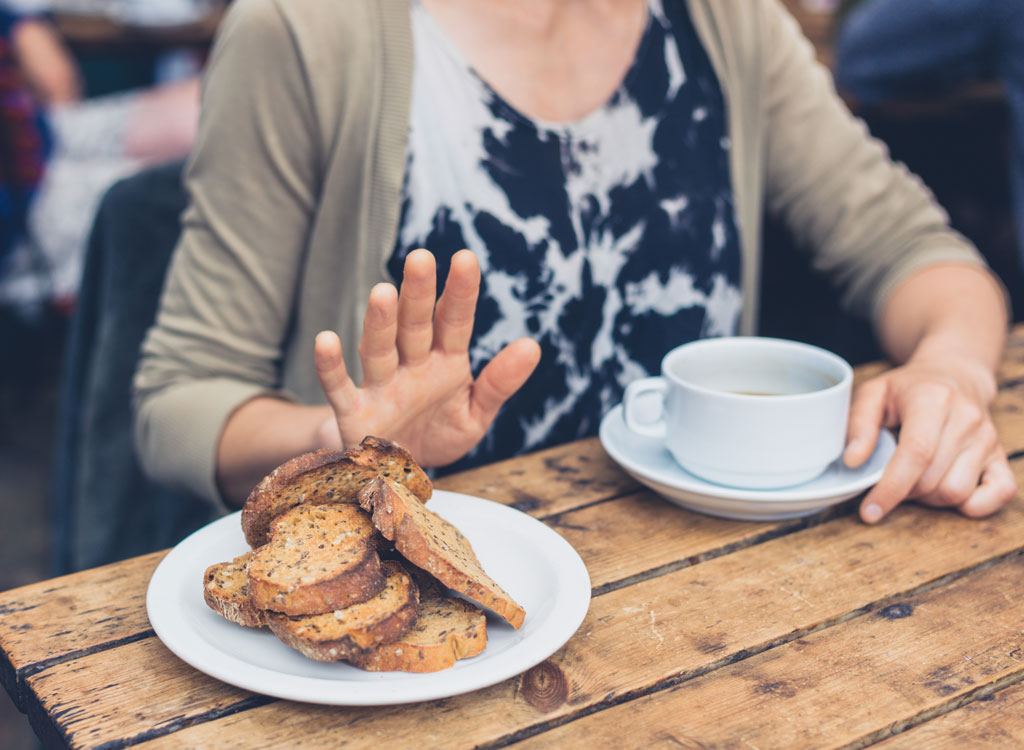
No food is inherently evil or amazing. "To restrict a certain food group, or only focus on [insert food item] for a week, you are not learning about proper nutrition, and when you slip, you smack the floor hard, since you're not aware of how to get back up," says Balk. Instead, focus on selecting meal plans that strike you as delicious, sustainable, and realistic for your lifestyle.
Don't yo-yo diet.
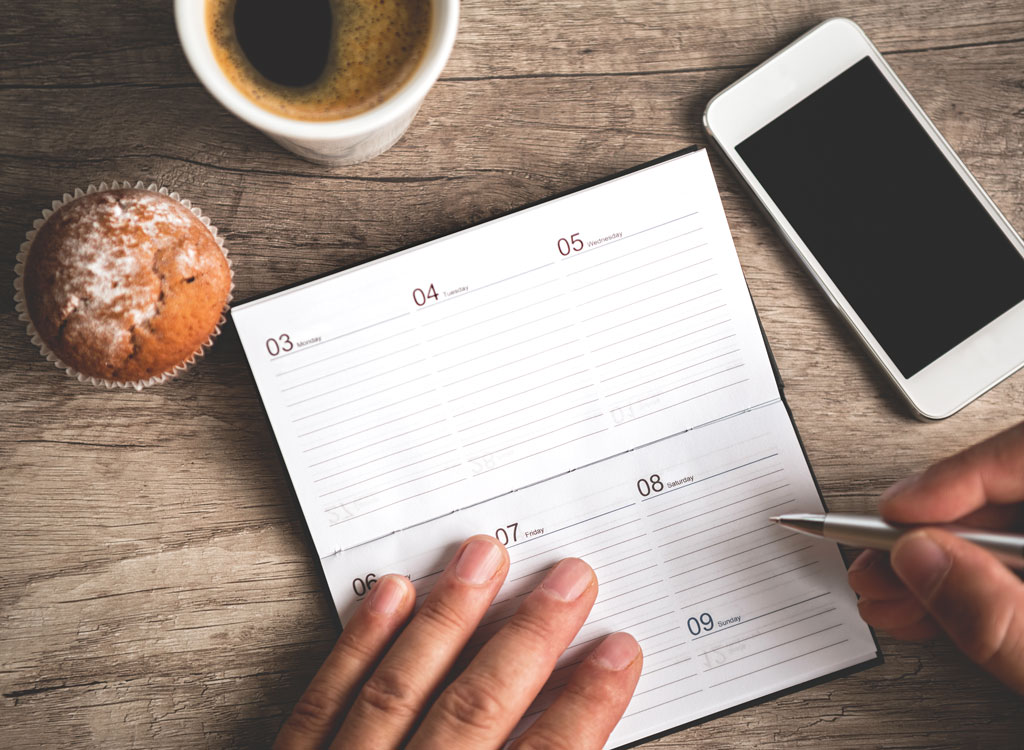
Why kick your 2020 off in this detrimental manner? "Yo-yo dieting can result in sharp decreases in the body's fat stores, which further results in hormonal deficiencies that control appetite, such as leptin," explains Fine. "As a result, we often see yo-yo dieters chronically hungry and generally out-of-tune with their intuitive feelings of hunger and fullness. To overcome this hurdle, it's imperative to reconsider the use of calorie- and fat-restricted diets, and rather consider an inclusive approach." To keep yourself on track and stop yo-yo dieting, keep a calendar. Cross off every day you stick to your diet. You'll notice you naturally keep it going as you see the streak build!
Free yourself of the diet = deprivation mindset.
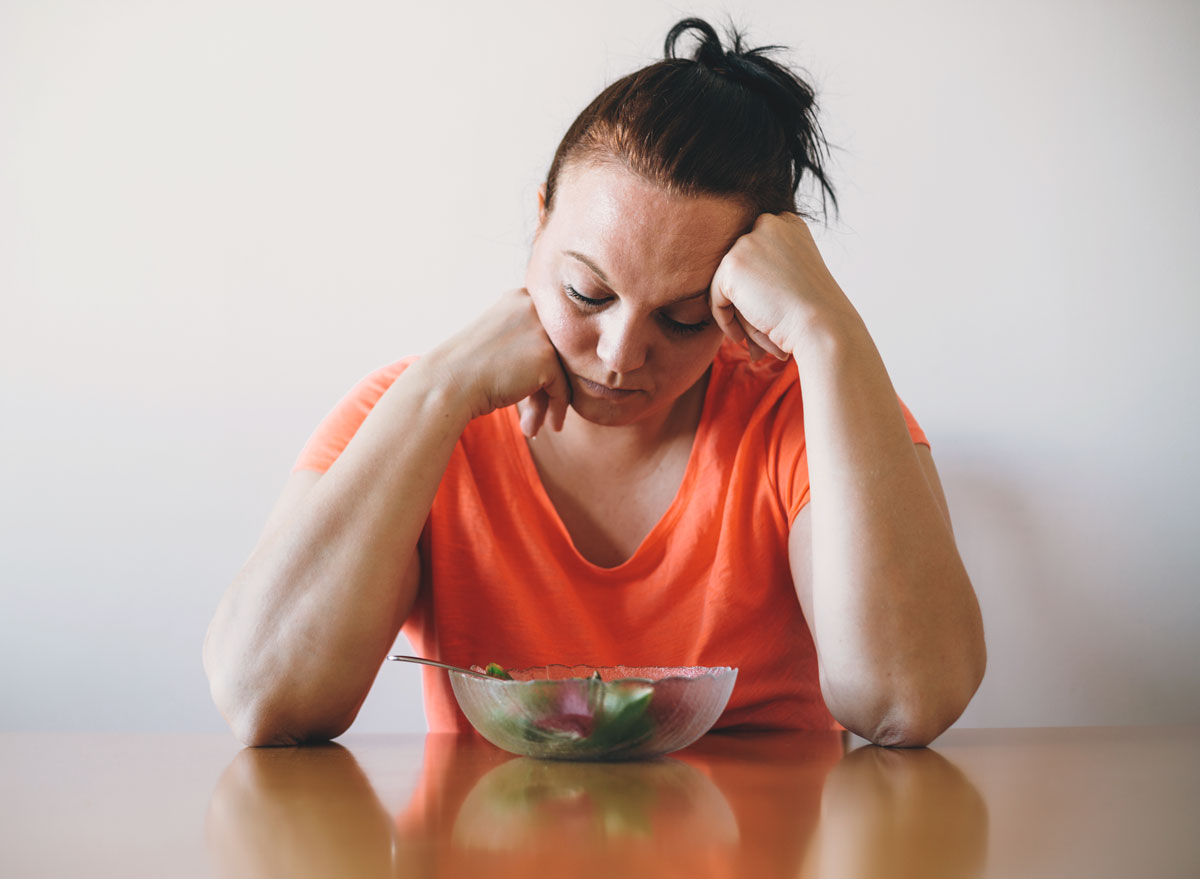
People automatically associate being on a diet with eating less or depriving themselves of something, and research shows that deprivation alters the mental state and often leads to eventual overeating," says Foley. "This can lead to guilt and an inevitable restrict-binge-guilt pattern that can be so hard to break free from."
Don't feel guilty about eating certain foods.

Kostro Miller put it best: "Those who have the best relationship with food do not feel guilty when they have a high-fat/high-sugar food item or meal every once in a while. [People who stick to their diets] know they will always revert back to their healthy diet."
Prioritize produce over processed foods.
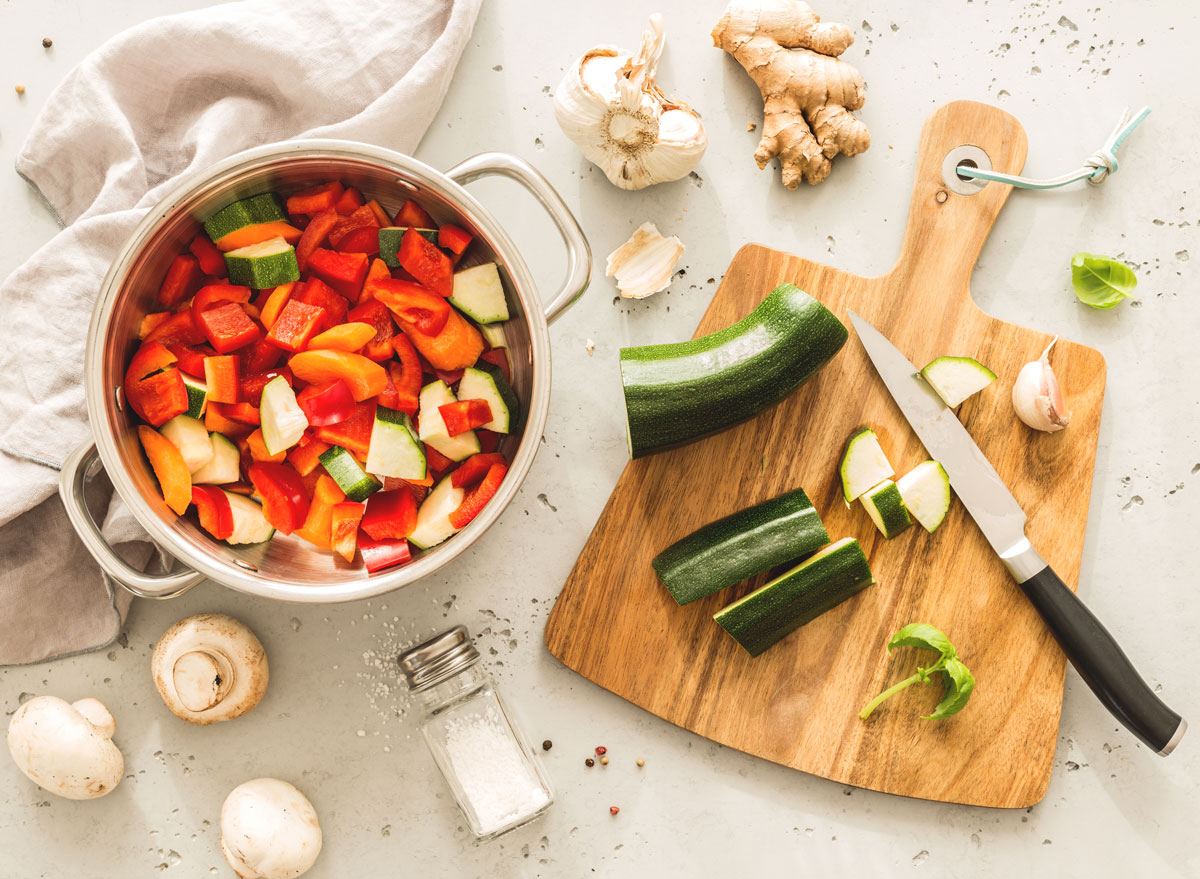
"Fill half your plate with vegetables and/or fruits," says Megan Wong, RD, who is the registered dietitian for AlgaeCal. "Fill yourself up with healthy fiber, vitamins, and minerals instead of unhealthy fats and refined carbohydrates." Yes, fruits, veggies, and fiber is the key to eating more and weighing less.
Use the 'eyeball method' to set up your plate.
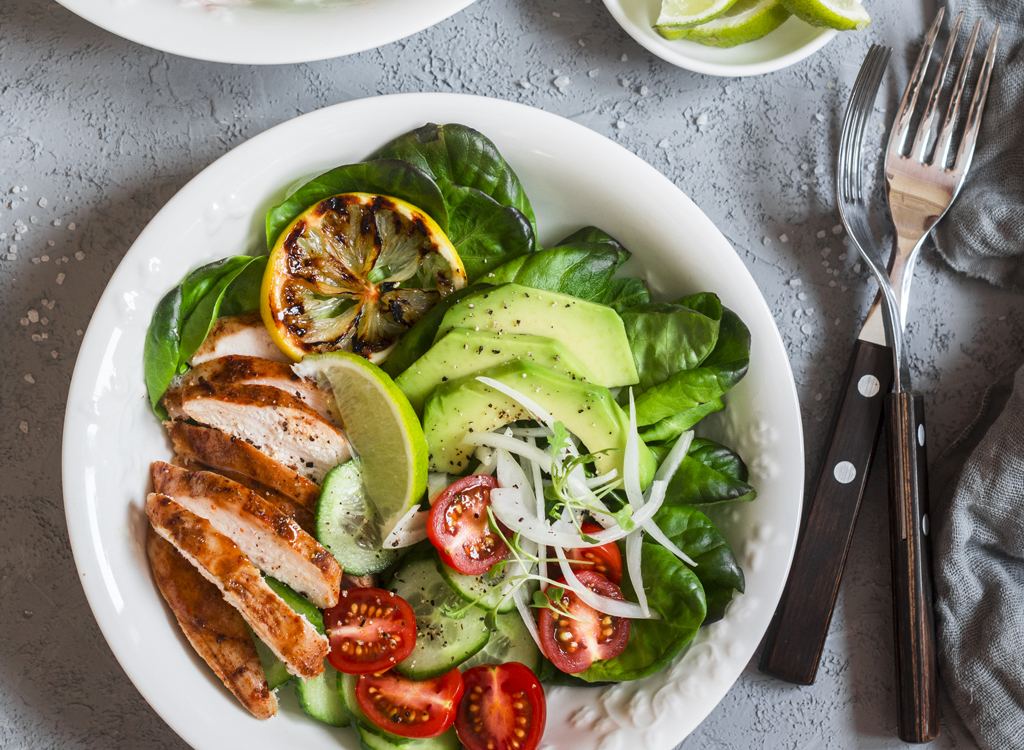
"The plate method (half your plate veggies, a quarter carbohydrate, and a quarter protein) is an easier and effective 'eyeball' method [than calorie counting]. It helps to keep your portion control in check, preventing overeating and weight gain," notes Balk. Challenge yourself to stick to these guidelines as much as possible and you'll be amazed at how easy it is to stick to your diet.
Think beyond protein, carbs, and fat to your body's micronutrient needs.
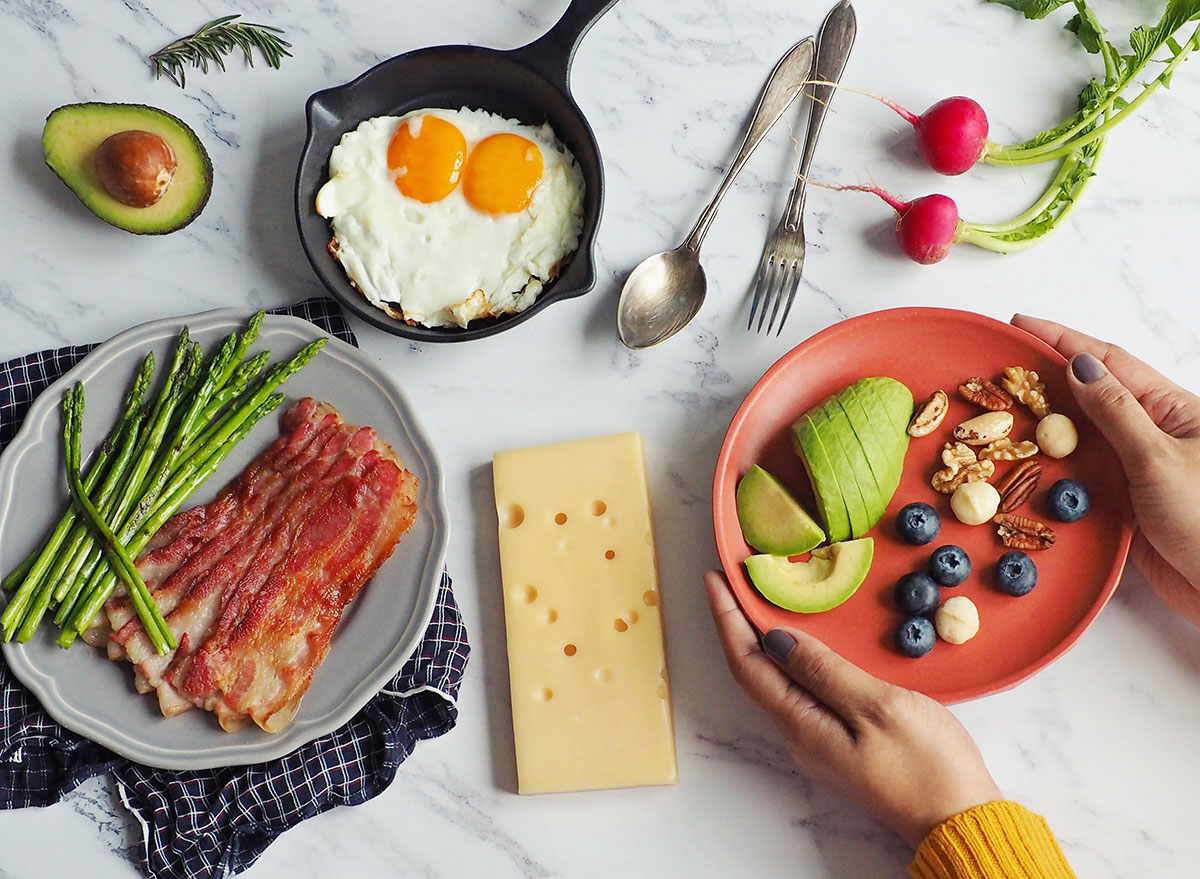
"People fail with their diets because they ignore their micronutrient needs. Being deficient in vitamins and minerals leads to metabolic problems that affect your body's ability to manage its weight," advises Norton. "One 2010 study showed that those who consumed vitamin and mineral supplements were leaner and had lower body fat. The key to avoiding this diet hurdle is to make sure that you meet your daily micronutrient requirements through whole foods or supplementation."
Realize that what works for others might not be what works for you.

"Instead of pressing pause, or feeling like you blew it, adjust the dial for the day," says St.Pierre on rebounding after you stray from your healthy eating plan and feel tempted to beat yourself up. "You can achieve your goals; just know that your path will look different than everyone else, including your own expectations." Your vegan-when-sober friend's diet may be very different than your friend who dropped 20 pounds on Whole 30, and that's a-ok, they're not you, and maintaining a healthy diet is about what finding what works best for you—for this new year, and every year thereafter.
